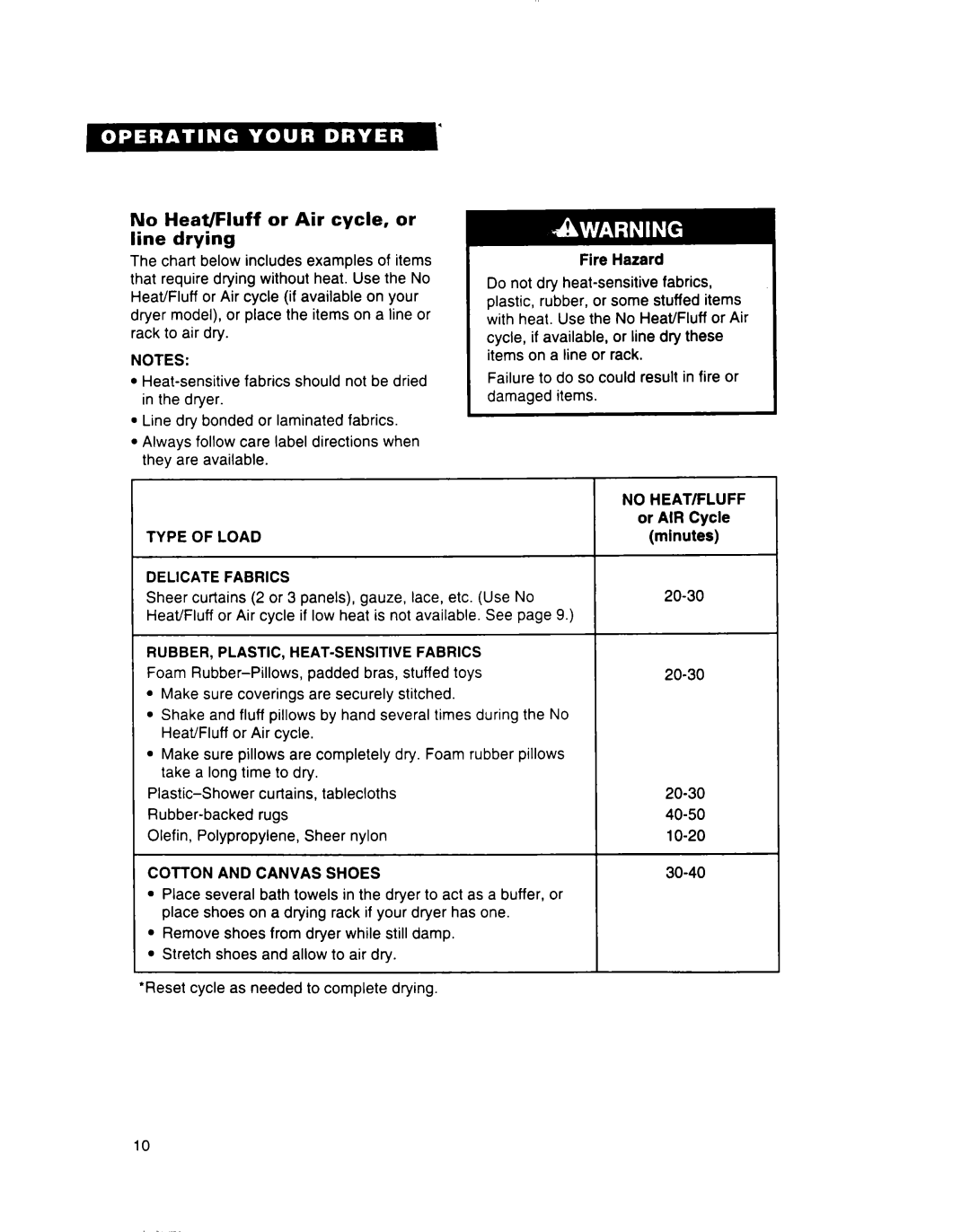
No Heat/Fluff or Air cycle, or line drying
The chart below includes examples of items that require drying without heat. Use the No Heat/Fluff or Air cycle (if available on your dryer model), or place the items on a line or rack to air dry.
NOTES:
l
l Line dry bonded or laminated fabrics.
l Always follow care label directions when they are available.
Fire Hazard
Do not dty
Failure to do so could result in fire or damaged items.
TYPE OF LOAD
DELICATE FABRICS
Sheer curtains (2 or 3 panels), gauze, lace, etc. (Use No Heat/Fluff or Air cycle if low heat is not available. See page 9.)
RUBBER, PLASTIC,
lMake sure coverings are securely stitched.
lShake and fluff pillows by hand several times during the No Heat/Fluff or Air cycle.
lMake sure pillows are completely dry. Foam rubber pillows take a long time to dry.
Olefin, Polypropylene, Sheer nylon
COTTON AND CANVAS SHOES
lPlace several bath towels in the dryer to act as a buffer, or place shoes on a drying rack if your dryer has one.
lRemove shoes from dryer while still damp. l Stretch shoes and allow to air dry.
NO HEAT/FLUFF or AIR Cycle (minutes)
10
